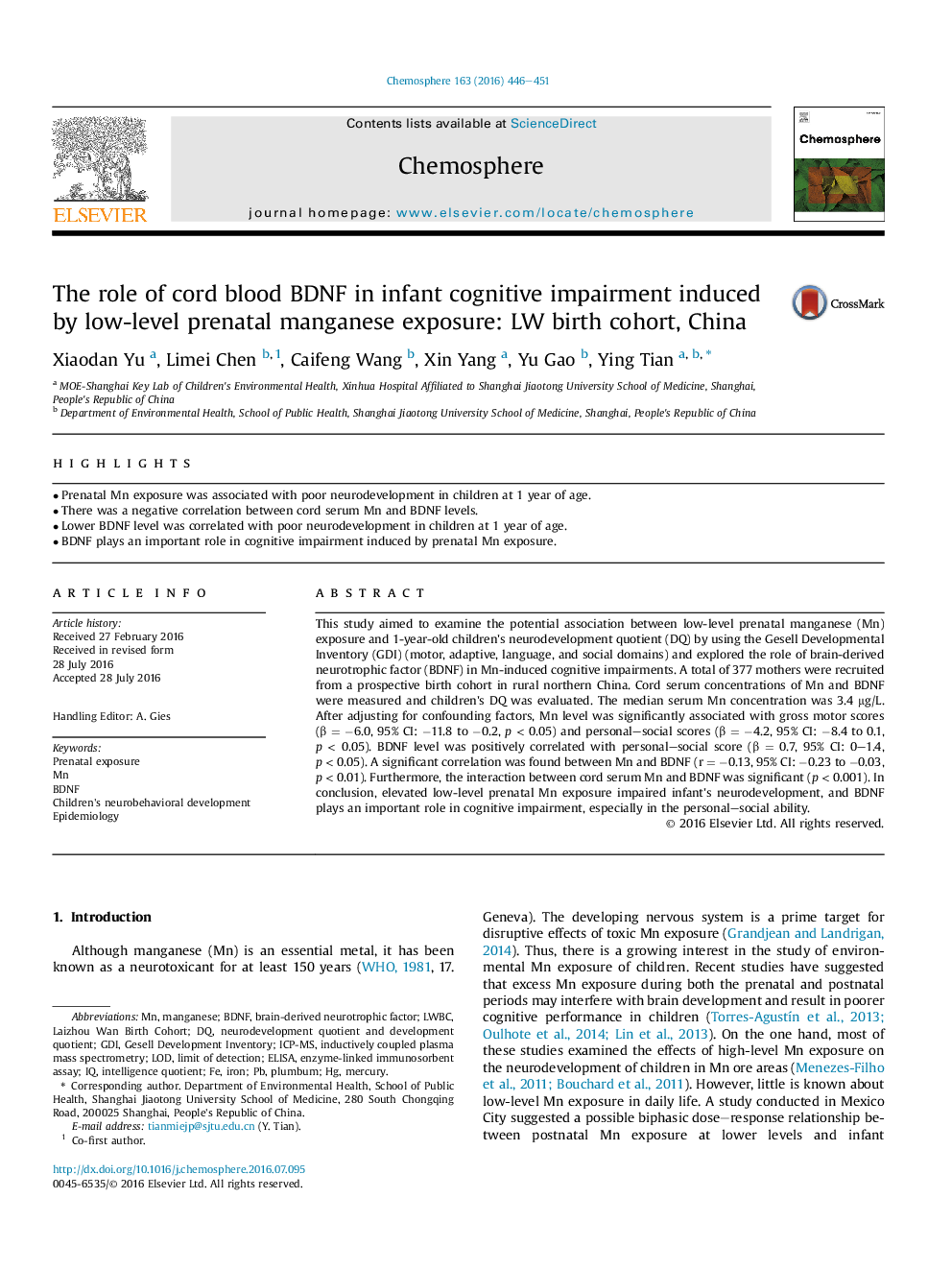| Article ID | Journal | Published Year | Pages | File Type |
|---|---|---|---|---|
| 6306304 | Chemosphere | 2016 | 6 Pages |
Abstract
This study aimed to examine the potential association between low-level prenatal manganese (Mn) exposure and 1-year-old children's neurodevelopment quotient (DQ) by using the Gesell Developmental Inventory (GDI) (motor, adaptive, language, and social domains) and explored the role of brain-derived neurotrophic factor (BDNF) in Mn-induced cognitive impairments. A total of 377 mothers were recruited from a prospective birth cohort in rural northern China. Cord serum concentrations of Mn and BDNF were measured and children's DQ was evaluated. The median serum Mn concentration was 3.4 μg/L. After adjusting for confounding factors, Mn level was significantly associated with gross motor scores (β = â6.0, 95% CI: â11.8 to â0.2, p < 0.05) and personal-social scores (β = â4.2, 95% CI: â8.4 to 0.1, p < 0.05). BDNF level was positively correlated with personal-social score (β = 0.7, 95% CI: 0-1.4, p < 0.05). A significant correlation was found between Mn and BDNF (r = â0.13, 95% CI: â0.23 to â0.03, p < 0.01). Furthermore, the interaction between cord serum Mn and BDNF was significant (p < 0.001). In conclusion, elevated low-level prenatal Mn exposure impaired infant's neurodevelopment, and BDNF plays an important role in cognitive impairment, especially in the personal-social ability.
Keywords
Related Topics
Life Sciences
Environmental Science
Environmental Chemistry
Authors
Xiaodan Yu, Limei Chen, Caifeng Wang, Xin Yang, Yu Gao, Ying Tian,
